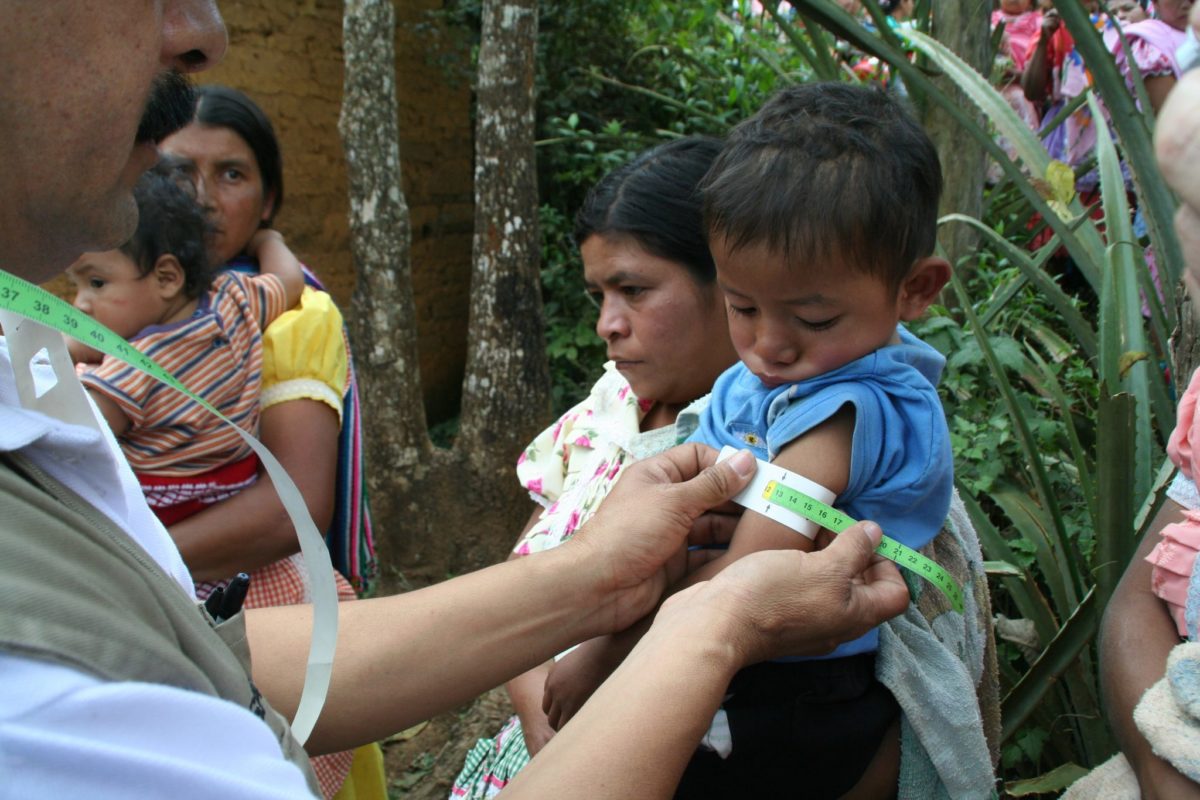2020 Severe Malnutrition Non-Technical Learning Series
In light of new terminology and research on the most effective ways to prevent malnutrition-related child mortality, 1,000 Days launched a new learning series focused on severe malnutrition. The learning series features monthly presentations by subject-matter experts on topics designed to help a non-technical audience unpack the latest evidence and craft more effective, informed severe malnutrition policies and advocacy campaigns. Through ongoing consultation with experts and audience members, 1,000 Days addresses the emerging issues, questions and information that are most relevant to people working in this field.
Spring Learning Series Topics
April 30, 2020 – Severe Malnutrition 101: Understanding the fundamentals
10am EST
Access a recording of the video here.
In this kick-off session, Saul Guerrero Oteyza, Child Wasting Nutrition Specialist at UNICEF, gave an overview of the current global mechanisms for preventing and treating severe malnutrition. The session offered an accessible background to foundational issues including: the history of wasting treatment; an overview of current treatment protocol; an explanation of the link between wasting and stunting; an elaboration on the uses and availability of ready to use therapeutic foods (RUTF); and an update on current efforts to streamline wasting treatment through the Global Action Plan (GAP) on Wasting.
May 29, 2020 – Management of Wasting: Programming Insights and Areas for Action
11am EST
Access a recording of the video here.
In this session, Marie McGrath, Technical Director at the Emergency Nutrition Network (ENN) and Co-Editor of ENN’s long running technical publication, Field Exchange, offer an accessible synthesis of key takeaways from a special 60th issue that examined management of wasting in children. Framed within the recently launched UN Global Action Plan (GAP) on wasting, this session shared insights from this rich collation of programming experiences and research to inform your advocacy efforts to build and scale capacity to care for wasted children worldwide.
*Note correction to dates on Slide 15:
Should read 2019 (not 2020) as follows:
Action
ECF & ENN Donor Roundtable, London, July 2019
Donor letter to the UN Secretary General from the core philanthropic donors, October 2019
Letter to UN Secretary General, 20th Dec 2019 – urgent action & reform
June 19, 2020 – Rounding Out the Power Four: MMS, Breastfeeding, and Vitamin A Supplementation
10am EST
Register HERE.
The ‘Power 4’ are a targeted set of high-impact nutrition interventions we can scale today to immediately reduce the number of children dying from severe malnutrition. Along with wasting treatment, which was the primary focus of the first two learning series sessions, MMS, Breastfeeding, and Vitamin A Supplementation are foundational interventions in the fight to improve nutrition for children around the world. Join leading experts representing each of these key interventions for a non-technical overview of the interventions’ significance, delivery, and current challenges, and for a chance to ask questions to people working directly with the Power 4.
Presenters:
- Dr. Rolf Klemm, Vice President, Nutrition at Helen Keller International and Associate Scientist at Johns Hopkins Bloomberg School of Public Health
- Dr. Saskia Osendarp, Executive Director Micronutrient Forum
- Dr Rukhsana Haider, Founder and Chair, Training & Assistance for Health & Nutrition Foundation (TAHN), Bangladesh, Co-Chair, Steering Committee, World Alliance for Breastfeeding Action (WABA), Penang, Malaysia
July 2020 – Crafting a compelling narrative around severe malnutrition
More information on date, time and registration link to come.
As the nutrition advocacy community begins to talk and write about severe malnutrition and its heightened focus on child mortality, there will be many opportunities to develop new communications narratives. Led by Blythe Thomas, Chief Strategy Officer at 1,000 Days, this session will focus on aligning messaging and crafting compelling communications materials that will speak clearly to non-nutrition audiences.
For more information, please email 1,000 Days Global Policy and Advocacy Manager, Emma Feutl Kent, at emma@thousandays.org.


